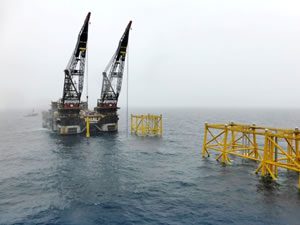Gal Luft, Co-Director of the US-based Institute for Global Safety Analysis, said: “If seawater penetrates the pipe, it can cause corrosion from the inside, which can lead to problems and leaks in the future.” said.
Gal Luft, Co-Director of the Global Security Analysis Institute, evaluated the impact of leaks in Nord Stream 1 and Nord Stream 2 natural gas pipelines on energy security to AA correspondent.
Stating that corrosion inside the natural gas pipe can affect the gaskets and connectors that connect the pipe segments, Luft said, “It is possible that the pipeline will become unusable or that the repair cost will be very high. This is more likely, especially when the pipes do not generate almost no revenue.” he said.
Luft emphasized that the lines in question can be repaired given that they are relatively shallow. made its assessment.
Expressing that submarine infrastructures such as pipelines and internet cables are “extremely vulnerable”, Luft said it is very difficult to prevent human-induced attacks.
Luft said that while various sensors could theoretically be placed in these pipelines, they are costly, making the pipes more expensive to build and maintain.
In the Baltic Sea, leaks occurred in pipelines carrying natural gas from Russia to Europe this week. While some European countries stated that the leaks were the result of sabotage, no information was given about who might have done it.
There were also allegations that the USA or Russia was behind the sabotage in question.
The Nord Stream 1 pipeline carried 55 billion cubic meters of gas per year from Russia to Germany under the Baltic Sea. Russia gradually reduced the gas it sent through this pipeline and closed the valve at the beginning of September.
The Nord Stream 2 pipeline, the construction of which was completed despite diplomatic difficulties, was never put into operation.
The opinions expressed herein are the author’s and not necessarily those of News2Sea.
